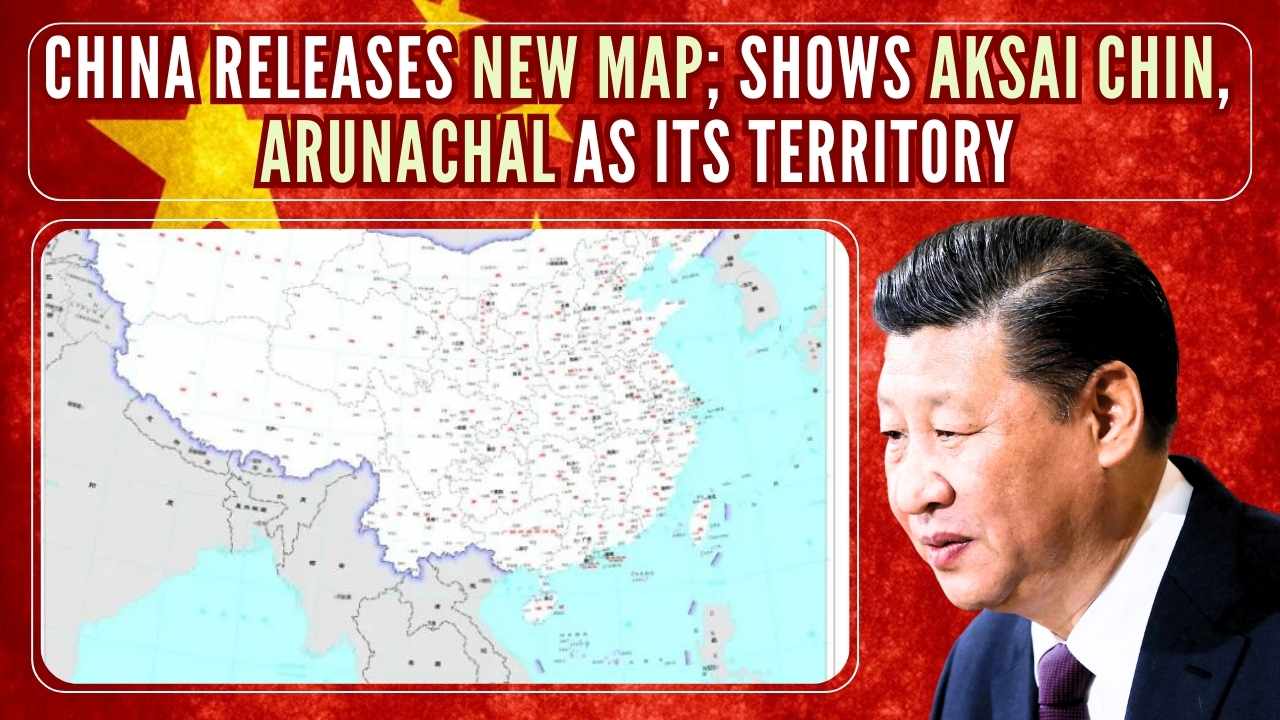A
Aditi Joshi
Guest
In a fresh escalation of diplomatic tensions, China’s Ministry of Natural Resources recently unveiled its 2023 edition of the “standard map,” laying claim to disputed territories, including Indian regions like Arunachal Pradesh and parts of Ladakh. This audacious move was met with a swift and resolute response from India’s Ministry of External Affairs (MEA).

PC PGurus
India’s Ministry of External Affairs wasted no time in issuing an official statement condemning China’s newly released “standard map.” Arindam Bagchi, the MEA’s official spokesperson, conveyed the country’s vehement protest against China’s baseless claims on Indian territories. Bagchi stated that these claims have no factual basis. It only serve to complicate the ongoing boundary dispute between the two nations.
China’s history of asserting territorial claims over parts of India is not new. From renaming places in Arunachal Pradesh to altering open-source maps of the Line of Actual Control. China’s actions have been consistent in undermining India’s sovereignty. In December 2021, the Ministry of External Affairs took a firm stand against China’s attempt to rename 15 locations in Arunachal Pradesh.
As the G20 Summit approaches, India’s spotlight on the global stage is accompanied by China’s territorial claims. The controversy surrounding the “standard map” release coincides with the run-up to the summit. Leaders from across the world are expected to engage in crucial discussions. China’s belligerent behavior raises questions about its sincerity in resolving border tensions. It is in light of its recent diplomatic interactions.
Despite Chinese President Xi Jinping’s calls for comprehensive talks to ease border tensions during his meeting with Indian Prime Minister Narendra Modi. China’s actions paint a different picture. The timing of this territorial dispute, just days before the G20 Summit, indicates a lack of sincerity on China’s part. While being part of the G20 nations, China’s persistent territorial claims strain its diplomatic credibility. It casts doubts on its commitment to peaceful negotiations.
China’s release of an imaginative “standard map” asserting territorial claims over Indian regions has drawn a strong response from India’s Ministry of External Affairs. This move not only exacerbates the ongoing border dispute but also raises concerns about China’s intentions in resolving tensions at the Line of Actual Control. As India prepares to host the G20 Summit, the controversy underscores the challenges in achieving diplomatic solutions and the need for a concerted global effort to address such disputes. The world will closely watch China’s actions in the coming days, as leaders convene to discuss critical global issues against the backdrop of these escalating tensions.
The post Unveiling China’s Imaginary Territorial Claims: India’s Firm Rejection and the Impending G20 Summit appeared first on The Jaipur Dialogues.
Continue reading...

PC PGurus
MEA’s Strong Rejection
India’s Ministry of External Affairs wasted no time in issuing an official statement condemning China’s newly released “standard map.” Arindam Bagchi, the MEA’s official spokesperson, conveyed the country’s vehement protest against China’s baseless claims on Indian territories. Bagchi stated that these claims have no factual basis. It only serve to complicate the ongoing boundary dispute between the two nations.
A History of China’s Territorial Claims
China’s history of asserting territorial claims over parts of India is not new. From renaming places in Arunachal Pradesh to altering open-source maps of the Line of Actual Control. China’s actions have been consistent in undermining India’s sovereignty. In December 2021, the Ministry of External Affairs took a firm stand against China’s attempt to rename 15 locations in Arunachal Pradesh.
Moreover, China’s disregard for international norms was evident in its destruction of over 30,000 world maps. They displayed Arunachal Pradesh as part of India.
The G20 Summit and China’s Timing
As the G20 Summit approaches, India’s spotlight on the global stage is accompanied by China’s territorial claims. The controversy surrounding the “standard map” release coincides with the run-up to the summit. Leaders from across the world are expected to engage in crucial discussions. China’s belligerent behavior raises questions about its sincerity in resolving border tensions. It is in light of its recent diplomatic interactions.
China’s Dubious Intentions
Despite Chinese President Xi Jinping’s calls for comprehensive talks to ease border tensions during his meeting with Indian Prime Minister Narendra Modi. China’s actions paint a different picture. The timing of this territorial dispute, just days before the G20 Summit, indicates a lack of sincerity on China’s part. While being part of the G20 nations, China’s persistent territorial claims strain its diplomatic credibility. It casts doubts on its commitment to peaceful negotiations.
Conclusion
China’s release of an imaginative “standard map” asserting territorial claims over Indian regions has drawn a strong response from India’s Ministry of External Affairs. This move not only exacerbates the ongoing border dispute but also raises concerns about China’s intentions in resolving tensions at the Line of Actual Control. As India prepares to host the G20 Summit, the controversy underscores the challenges in achieving diplomatic solutions and the need for a concerted global effort to address such disputes. The world will closely watch China’s actions in the coming days, as leaders convene to discuss critical global issues against the backdrop of these escalating tensions.
The post Unveiling China’s Imaginary Territorial Claims: India’s Firm Rejection and the Impending G20 Summit appeared first on The Jaipur Dialogues.
Continue reading...
